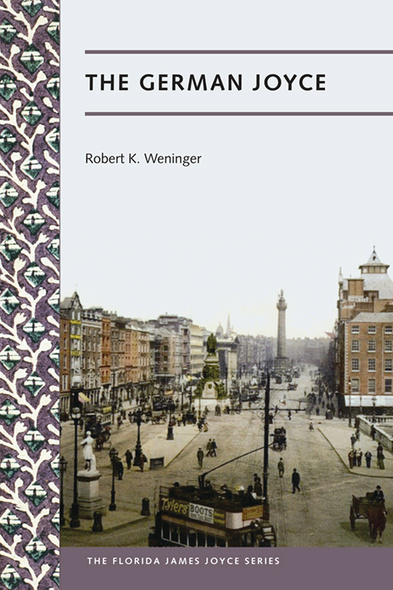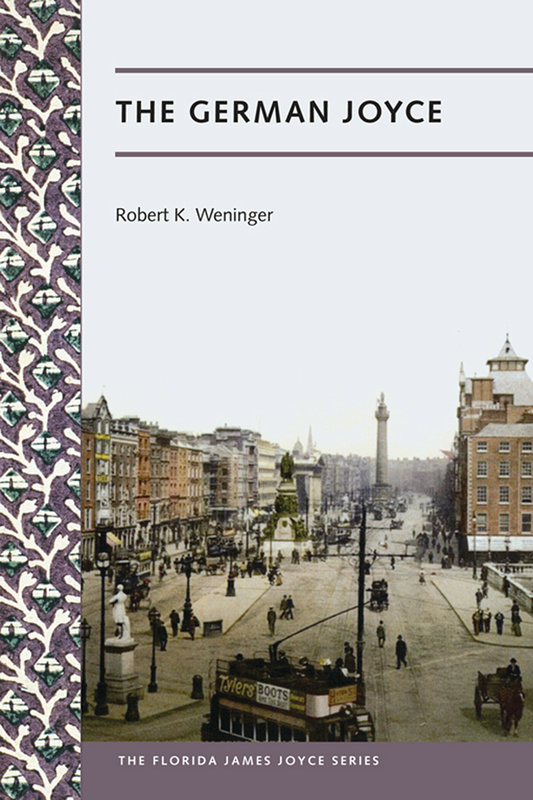Our shopping cart is currently down. To place an order, please contact our distributor, UTP Distribution, directly at utpbooks@utpress.utoronto.ca.

In August 1919, a production of James Joyce’s Exiles was mounted at the Munich Schauspielhaus and quickly fell due to harsh criticism. The reception marked the beginning of a dynamic association between Joyce, German-language writers, and literary critics. It is this relationship that Robert Weninger analyzes in The German Joyce.
Opening a new dimension of Joycean scholarship, this book provides the premier study of Joyce’s impact on German-language literature and literary criticism in the twentieth century. The opening section follows Joyce’s linear intrusion from the 1910s to the 1990s by focusing on such prime moments as the first German translation of Ulysses, Joyce’s influence on the Marxist Expressionism debate, and the Nazi blacklisting of Joyce’s work. Utilizing this historical reception as a narrative backdrop, Weninger then presents Joyce’s horizontal diffusion into German culture.
Weninger succeeds in illustrating both German readers’ great attraction to Joyce’s work as well as Joyce’s affinity with some of the great German masters, from Goethe to Rilke, Brecht, and Thomas Mann. He argues that just as Shakespeare was a model of linguistic exuberance for Germans in the eighteenth century, Joyce became the epitome of poetic inspiration in the twentieth.
A volume in The Florida James Joyce Series, edited by Sebastian D. G. Knowles
The single best source for understanding Joyce’s very special role in German literary culture.’—JJames Joyce Literary Supplement‘Succeeds admirably . . . in demonstrating the widespread, intricate, and abiding influence of Joyce on German writers.’—English Literature in Transition
‘A very considerable contribution to our understanding of the international range, impact, and resonance of Joyce’s work.’—James Joyce Quarterly
‘A very clear and accessible account of the reception of Joyce’s writings in the German-speaking world. . . . Weninger is to be congratulated on the richness of what he has to show us here about the importance of Joyce as a reference-point for the understanding of modern German literary culture.’—Modern Language Review
‘Powerfully argues the case for viewing Shakespeare as the most significant English-language author for the eighteenth and nineteenth centuries in German-speaking lands, and Joyce as filling that role in the twentieth century and down to the present.’—Literary Research
‘A valuable contribution to scholarship on Joyce’—Comparative Critical Studies
Robert K. Weninger, emeritus professor of German and comparative literature at King’s College London, is author or editor of over ten books, including Arno Schmidts Joyce-Rezeption 1957–1970: Ein Beitrag zur Poetik Arno Schmidts, and is a past editor of the Journal of Comparative Critical Studies.




